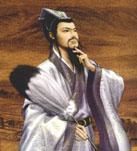

For the first few months of its second term, the Bush administration seemed finally to be starting to practice foreign policy. But Condi Rice's decision to snub - no other word will suffice - the ARF meeting in Vientiane this week racks up another notch on Washington's tally of misplaced priorities. At a time when China is raking in returns at every regional forum, the US has signalled that it is not even playing the game. One might dismiss this as the faux pas of a Cold War-trained Europeanist like Rice, but it's better viewed as symbolic of Washington's political malaise in the Asia-Pacific.
Australian governments of all political stripes deal by necessity with Asia on its own terms. No experienced Canberra watcher would have been surprised by Alex D's sudden change of tack over the past fortnight (his backflip with pike, to use Rudd's phrase) to guarantee Australian ratification of the TAC, as the admission price to the East Asian Summit this November. The US foreign policy elite by contrast still has an apparent tendency to view Asia as not having real politics, only security and human rights issues. Washington is happy to beat North Korea or Myanmar around the head but can't be bothered turning up to the forum that has clearly become the engine of regional politics. One need only compare Washington's treatment of the EU and NATO over the Kosovo affair with that of South Korea in the current spat over Pyongyang's nuclear program to see that an attitude transplant is long overdue.
Quite simply the US has had it too good for too long in the region. US policymakers seem stuck with a view of the Asia-Pacific as as US lake, in need of a little militaristic stamping every now and then but not of bona fide, give-and-take diplomacy. It was this mentality, buttressed by racial prejudice, that led pre-1941 Americans to write off Japan as a threat to US regional interests. No one would suggest that today China is being ignored, but mainstream US responses to China's rise remain confined to jingoistic chest thumping rather than serious engagement in the region's political architecture. For several years now it's been an open secret that Beijing is conducting an intense diplomatic campaign across the Asia-Pacific, yet the US persists in an approach of Napoleonic entitlement towards its Asian allies, pressing them into Washington's military adventures but not giving even face value to their economic and political aspirations. Well, times change. The San Francisco order isn't going to survive on inertia for much longer - if the US wants to stay in the driving seat then it has to put in the diplomatic miles, rather than treating the Asia-Pacific as terra manifest destiny.

No comments:
Post a Comment